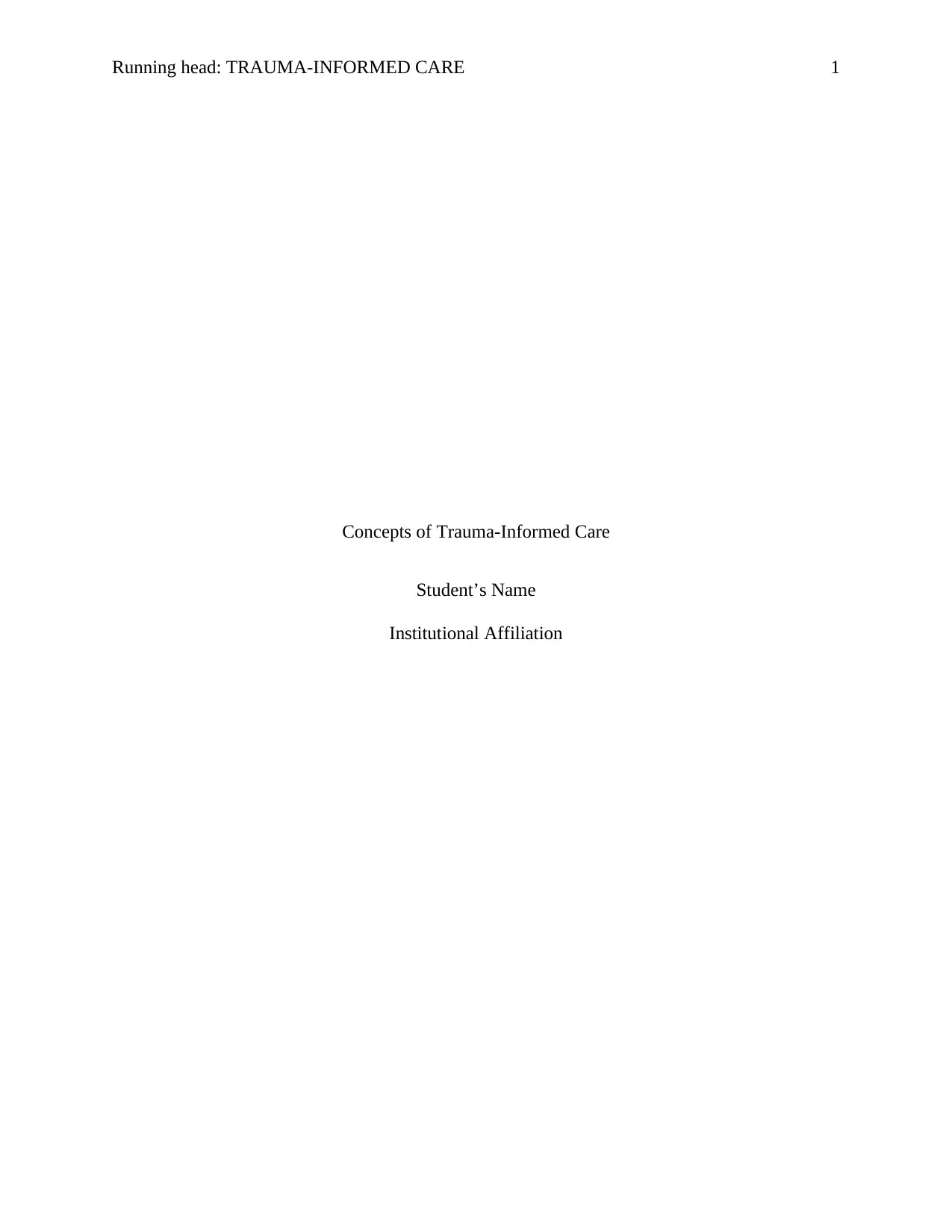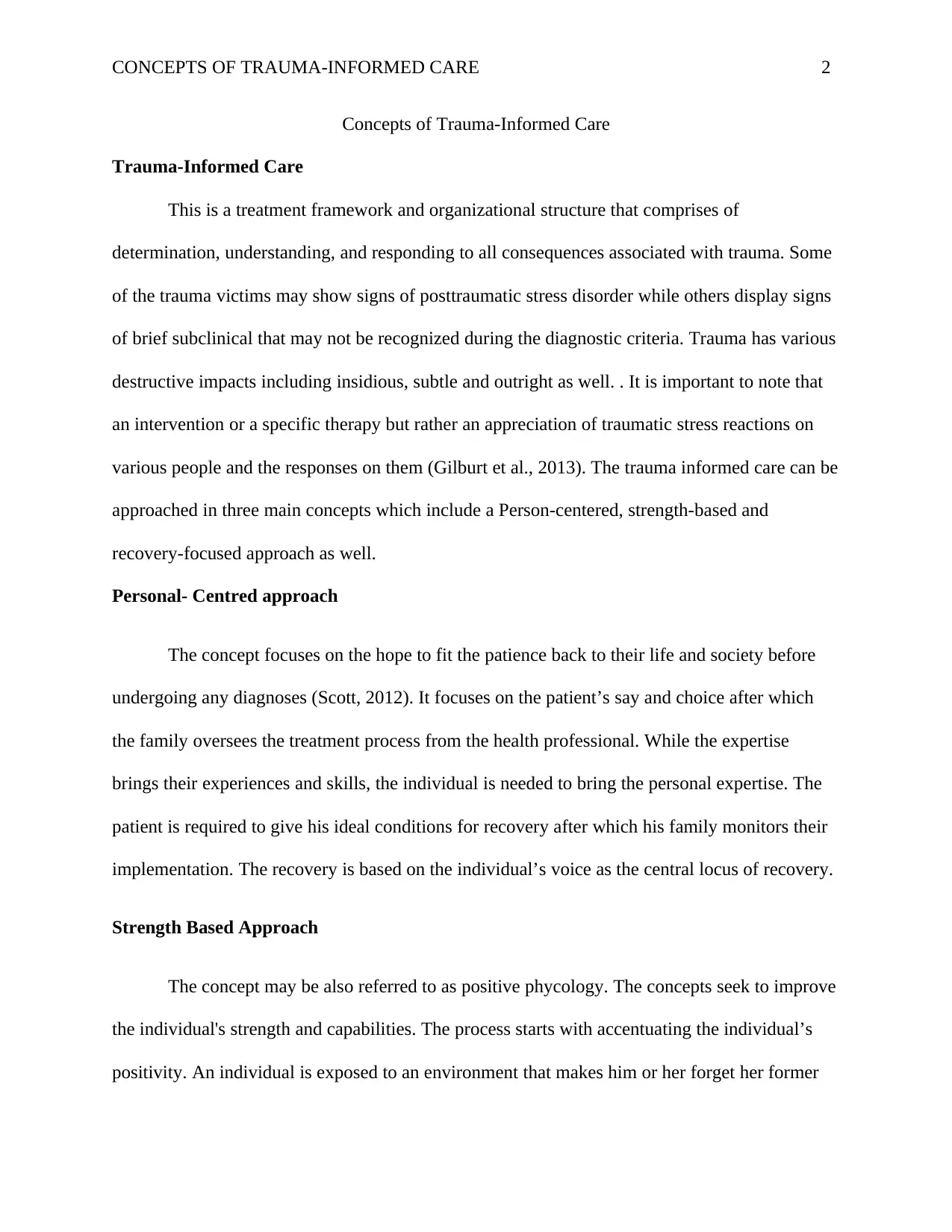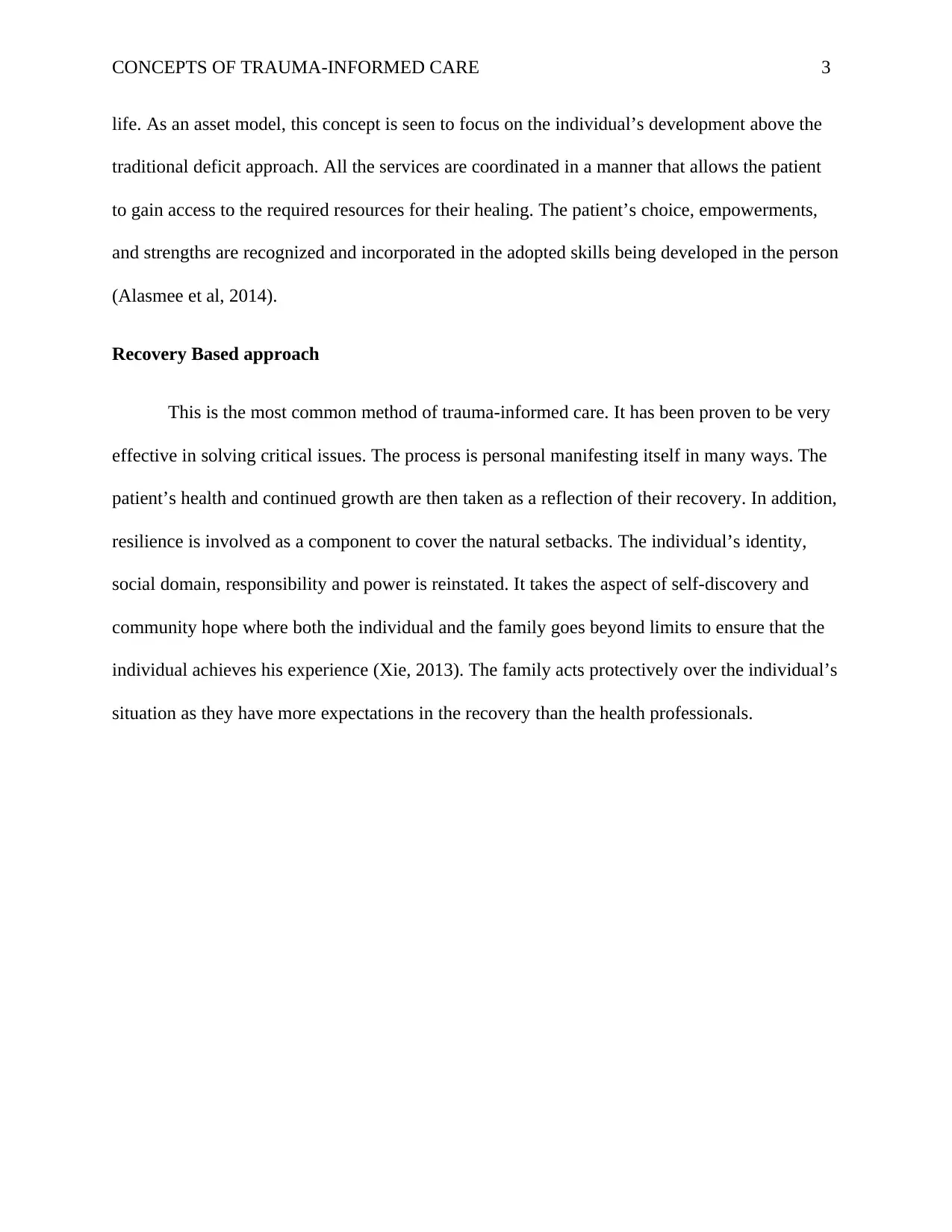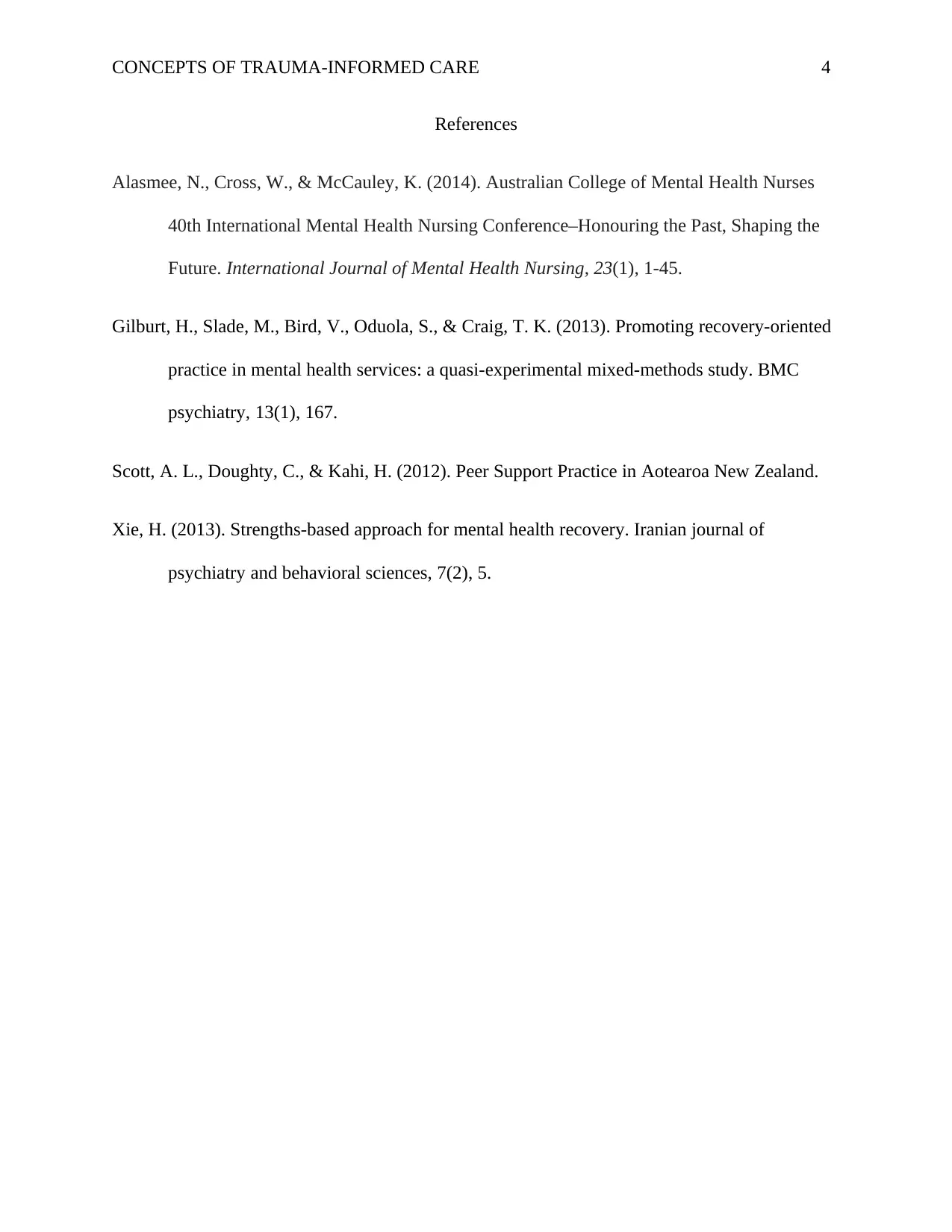Trauma-Informed Care: Exploring Concepts & Contemporary Mental Health
VerifiedAdded on 2023/06/14
|4
|694
|82
Essay
AI Summary
This essay explores trauma-informed care (TIC) through the lens of three interconnected concepts: person-centered, strength-based, and recovery-focused approaches. It defines TIC as a treatment framework that recognizes, understands, and responds to the effects of trauma. The person-centered approach emphasizes patient choice and involvement in their recovery, while the strength-based approach focuses on enhancing individual capabilities and positivity. The recovery-focused approach highlights resilience, self-discovery, and community support in the healing process, with families playing a crucial role in the patient's journey. The essay supports its arguments with references to relevant research literature, illustrating how these concepts serve as valuable additions to traditional biomedical care in contemporary mental health practices. Desklib provides access to similar essays and study resources for students.
1 out of 4











![[object Object]](/_next/static/media/star-bottom.7253800d.svg)